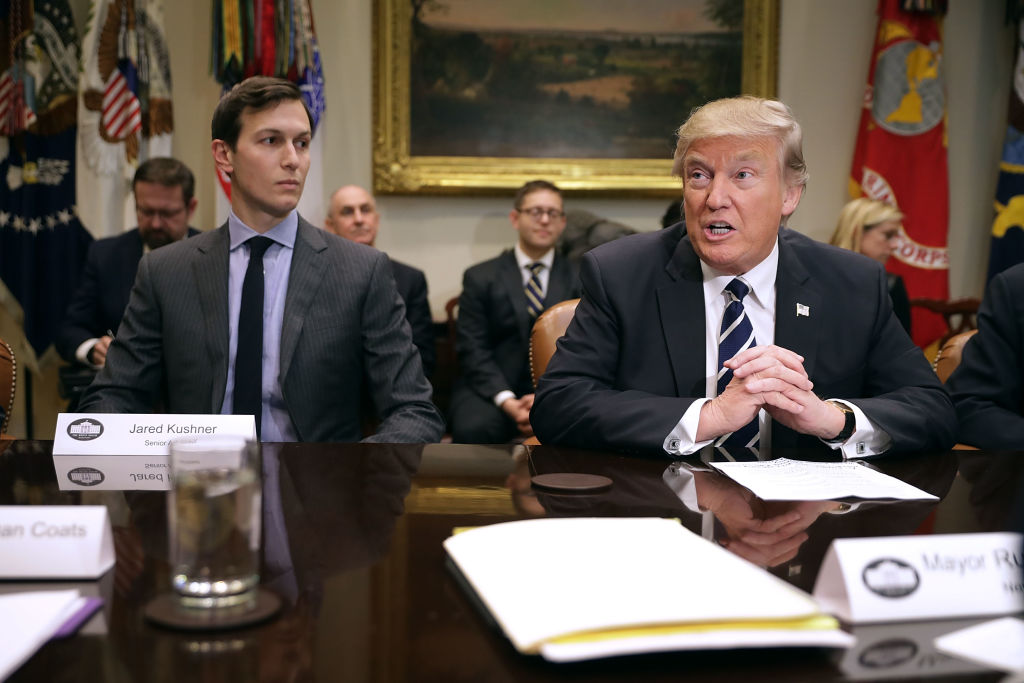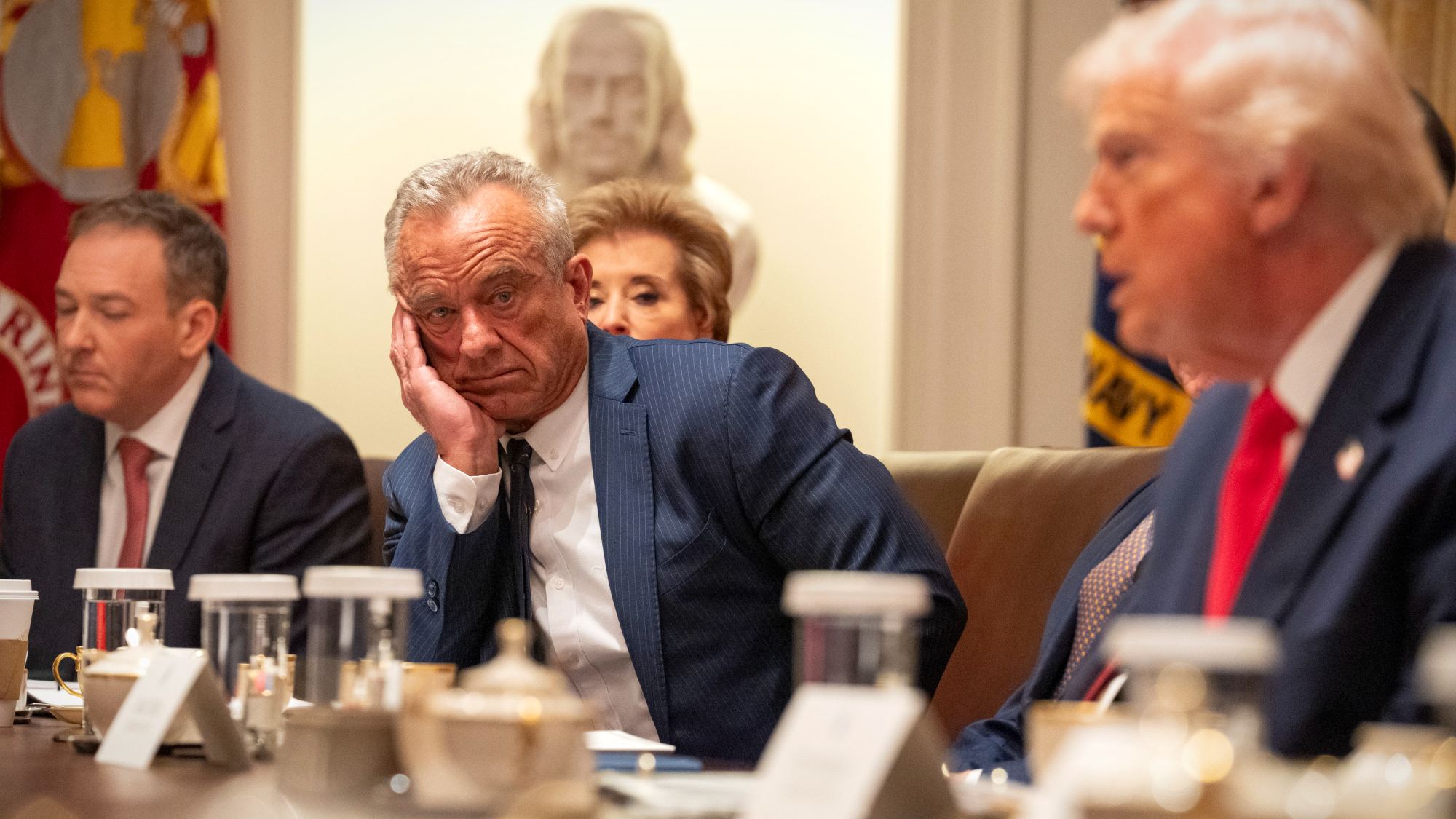America's government can't be run like a business. That's a feature, not a bug.
America's government has lots of problems. Private-market magic is not the solution to them.


Here's a new idea no one has ever proposed before: Let's run the U.S. government more like a private business.
Okay, I kid. Everyone has proposed this. Pretty much every president in recent memory has wanted to reorganize the federal government, cut redundancy and waste, inject competition and market forces, and remake the government into a lean, mean, efficiency machine. Progress does happen — former President Obama created the U.S. Digital Service to help the government better develop technologies, procedures, and systems. But it's rare.
Enter President Trump — who actually does have a long career as a private businessman. If anyone can run the American government like a business, it's Trump ... right?
The Week
Escape your echo chamber. Get the facts behind the news, plus analysis from multiple perspectives.

Sign up for The Week's Free Newsletters
From our morning news briefing to a weekly Good News Newsletter, get the best of The Week delivered directly to your inbox.
From our morning news briefing to a weekly Good News Newsletter, get the best of The Week delivered directly to your inbox.
We'll soon find out. On Monday, he unveiled the White House Office of American Innovation, to be headed by son-in-law Jared Kushner, and tasked with overhauling government while combating "stagnation" and "cost overruns and delay." A lot of the goals sound worthy: Kushner wants to reform Veterans Affairs, spin up big infrastructure projects like providing broadband to every American, find new ways to combat the opioid epidemic, modernize the technology used at federal agencies, and more.
"The government should be run like a great American company," Kushner added. "Our hope is that we can achieve successes and efficiencies for our customers, who are the citizens."
Can Trump and Kushner actually succeed where others failed? Maybe. But first, they need to drop this notion of "running the government like a business."
Government isn't like a private business and will never be like a private business. By definition, it does not face competitors, nor it does need to make a profit. In fact, offering an alternative to the profit-driven private markets is half the point of government.
A free daily email with the biggest news stories of the day – and the best features from TheWeek.com
American citizens aren't the government's "customers." They're more like the government's employer, deciding what projects they want done through democratic dialogue and then delegating that job to some part of government. And since the federal government controls the currency, and can ultimately print money to finance its borrowing, it isn't hemmed in by the demands of profit-driven competition. Its only upper limit is the risk of inflation. That allows it to keep spending in a downturn, when private businesses have to tighten their belts or close up shop.
The government's approach has its weaknesses: Without the discipline of competition, cost overruns, redundancies, and bureaucratic sclerosis can set in. Just look at the byzantine and horribly expensive process of government infrastructure. Massive military boondoggles are another classic example.
But the government also has its strengths. Because private businesses are profit driven, they often fail to provide low-income Americans with infrastructure and transit, internet access and broadband, education, mail services, health care, financial services, access to decent food, and lots of other services. Private markets have a terrible time addressing systemic social failures like climate change. And of course, some projects just don't lend themselves to market competition, leading to natural monopolies. Government can step in and plug these holes, or even take over providing these services entirely.
Unfortunately, when we insist the problem is always that government doesn't operate enough like a business, we miss the point that this is a feature, not a bug.
The government obviously has problems. But the lack of private-market magic in its own operations isn't really one of them.
Government's big problems can't necessarily be solved by Kushner's new office, or his apparent interest in public-private partnerships. A lot of the government's problems need solutions that involve reforming Congress or even rewriting parts of the Constitution. But let's be clear: Fixing these problems isn't about making government look more like a business, because that's impossible. Rather, fixing government institutions is about making them work better on their own terms.
Jeff Spross was the economics and business correspondent at TheWeek.com. He was previously a reporter at ThinkProgress.
-
 Education: More Americans say college isn’t worth it
Education: More Americans say college isn’t worth itfeature College is costly and job prospects are vanishing
-
 One great cookbook: ‘More Than Cake’
One great cookbook: ‘More Than Cake’the week recommends The power of pastry brought to inspired life
-
 Democrat files to impeach RFK Jr.
Democrat files to impeach RFK Jr.Speed Read Rep. Haley Stevens filed articles of impeachment against Health and Human Services Secretary Robert F. Kennedy Jr.
-
 Has Zohran Mamdani shown the Democrats how to win again?
Has Zohran Mamdani shown the Democrats how to win again?Today’s Big Question New York City mayoral election touted as victory for left-wing populists but moderate centrist wins elsewhere present more complex path for Democratic Party
-
 Millions turn out for anti-Trump ‘No Kings’ rallies
Millions turn out for anti-Trump ‘No Kings’ ralliesSpeed Read An estimated 7 million people participated, 2 million more than at the first ‘No Kings’ protest in June
-
 Ghislaine Maxwell: angling for a Trump pardon
Ghislaine Maxwell: angling for a Trump pardonTalking Point Convicted sex trafficker's testimony could shed new light on president's links to Jeffrey Epstein
-
 The last words and final moments of 40 presidents
The last words and final moments of 40 presidentsThe Explainer Some are eloquent quotes worthy of the holders of the highest office in the nation, and others... aren't
-
 The JFK files: the truth at last?
The JFK files: the truth at last?In The Spotlight More than 64,000 previously classified documents relating the 1963 assassination of John F. Kennedy have been released by the Trump administration
-
 'Seriously, not literally': how should the world take Donald Trump?
'Seriously, not literally': how should the world take Donald Trump?Today's big question White House rhetoric and reality look likely to become increasingly blurred
-
 Will Trump's 'madman' strategy pay off?
Will Trump's 'madman' strategy pay off?Today's Big Question Incoming US president likes to seem unpredictable but, this time round, world leaders could be wise to his playbook
-
 Democrats vs. Republicans: who are US billionaires backing?
Democrats vs. Republicans: who are US billionaires backing?The Explainer Younger tech titans join 'boys' club throwing money and support' behind President Trump, while older plutocrats quietly rebuke new administration
